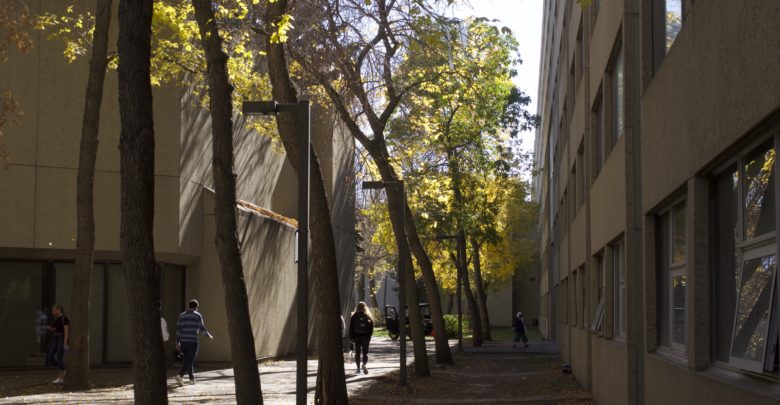 Emily Williams
Emily WilliamsThe first thing I thought when I saw the 2021-22 academic calendar was ‘why is reading week so late this year?’ — and I know I’m not alone.
In times like these, breaks from school are vital to maintaining mental health, reducing stress, and limiting burnout: aspects of student life that are becoming all too common. Students are in dire need of mental health supports, and with the timing of fall reading week, I don’t think they’re getting it.
The installation of fall reading week in 2014 was meant to be a solution to the problems that were drastically impacting the majority of students on campus. It took years of campaigning from the Students’ Union for the University of Alberta to implement a fall reading week.
So soon after its enactment, fall reading week is proving to be too little too late to help students combat mid-semester stress and mental health issues. In a study conducted in 2019, 62.1 per cent of students found themselves feeling hopeless in the last year, 89.8 per cent felt overwhelmed, and 16.4 per cent heavily considered suicide. During the pandemic, mental health has only worsened amongst students, and suicide was the second leading cause of death of people between the ages of 15 to 34, even in the years leading up to the pandemic.
Reading week is meant to be a mid-semester break to catch up on school work, visit friends, and take some necessary me-time before studying for final exams. How can you do that when the first day back after reading week is just over three weeks from the last day of class? Reading week itself is only a week, which is hardly enough time to fully decompress before returning back to school. Now, I’ll be spending my reading week stressing about end of term projects and final exams.
This fall semester has been one of the hardest for everyone, whether that be faculty, returning students, or brand new ones. From transitioning back to in-person learning, the constant fear of going back online, and the usual academic stress, this year has certainly been one of the most challenging and stressful of my own academic career.
Additionally, mental health crises are unfurling on campuses across the world with students facing unprecedented problems.
On top of the COVID-19 pandemic that halted life as we knew it for almost two years, the University of Alberta proposed exceptional tuition increases to many graduate and undergraduate programs. The pandemic also caused many students to lose their jobs, causing severe food and financial insecurity, and food banks across the country are seeing a surge in demand for their services as a result. Some young Albertans are even leaving the province in favour of more affordable and accessible options.
What students need now, more than ever, is a long, peaceful break that involves very little studying and a lot more relaxing. Throughout the semester reading week has felt eons away, and no matter how close it seems to be, it’s just slightly out of reach.
No matter what year students are in, this year has been nothing but stressful. First year students are grappling with the high school to university transition, while upper year students are going to be juggling term papers and projects for the entirety of reading week, all during a global pandemic. Instead of finishing reading week feeling refreshed, students are going to be burning out and counting down the days until the end of term.




